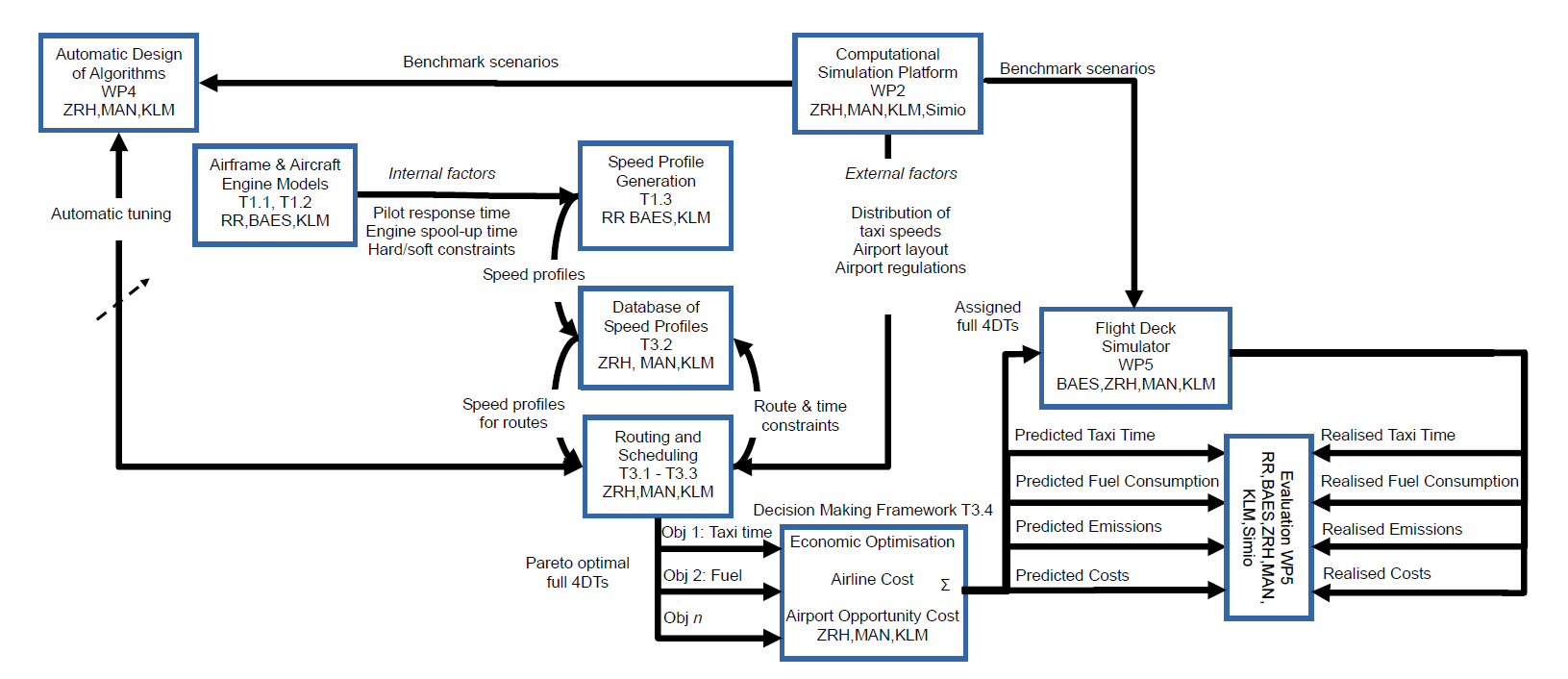There is an imminent need to make better use of existing aviation infrastructure as air traffic is predicted to increase 1.5 times by 2035. Many airports operate at near maximum capacity, and inefficient operations lead to delays, congestion, and increased fuel costs and noise levels inconveniencing all stakeholders, including airports, airlines, passengers and local residents.
A critical issue is routing and scheduling the ground movements of aircraft. Although ground movement is only a small fraction of the overall flight, the inefficient operation of aircraft engines at taxiing speed can account for a significant fuel burn. This applies particularly at larger airports, where ground manoeuvres are more complex, but also for short-haul operations, where taxiing represents a larger fraction of an overall flight. It is estimated that fuel burnt during taxiing alone represents up to 6% of fuel consumption for short-haul flights resulting in 5m tonnes of fuel burnt per year globally. TRANSIT aims to investigate a decision support system which considers multiple factors to provide more robust taxiing routes. It represents a collaboration across a broad range of disciplines and fields (Engineering, Operational Research, and Computer Science) needed to tackle such challenging problem. Cooperation with leading industrial stakeholders, and consultation with established academics, ensure that the work is cutting edge while reflecting needs of the industrial partners.
The overall programme of work planned for the three years of TRANSIT is given below.
WP1: Computational Modelling Of Factors Internal To Aircraft.
WP2: Computational Modelling Of Factors External To Aircraft.
WP3: Development Of Full-4DT Generation Techniques.
WP4: Automatic Design Of Routing And Scheduling Algorithms For Reconfigurability.
WP5: Flight Deck Simulator, Piloted Trials And Evaluations.
